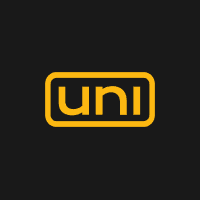
Hello!
If you've stumbled upon this article, you're most likely curious about the recruitment process in our team, what you need to know, and how to prepare for each stage of selection.
One of the key values in our team is openness, so we're committed to sharing all the information you need to know about the process inside our company.
Recruitment stages for vacancies can vary; we build the process based on the specifics of the role, grade, and market conditions. We determine which skills we need to assess in each candidate and make decisions regarding the next steps accordingly. Typically, during the first call, our recruiter will inform the candidate about how the further communication will be structured.
The first stage is the CV review. The recruiter's main task is to direct the most relevant candidates to the hiring manager, so at this stage, we have to decline a significant number of candidates. What influences the recruiter's decision? First and foremost, they pay attention to the candidate's experience and skills as stated in the job posting. For some positions, portfolio review is required, for example, for designers or content creators, and code review is necessary for developers. This helps us gain an initial understanding of the specialist's hard skills.
What influences the recruiter's decision?
If you feel that you might not have enough experience but you are eager to join our company, it's a good idea to follow us on social media and keep an eye out for new job offers in your field. If you believe you match more than 80% of the job requirements, we recommend attaching a cover letter to your resume. In the cover letter, you should mention what you like about our company, highlight your strengths, express your willingness to learn, and explain why you want to work with us.
Here, we've gathered some key tips on how to prepare your CV.
The next stage is the screening with a recruiter (often called the initial interview or phone interview with a recruiter). During this stage, we get to know the candidate personally, tell them about the company and the vacancy, and learn more about their motivations and experience.
The screening stage is often underestimated, and many candidates approach it without adequate preparation. However, based on our experience, only 30-40% of candidates proceed to the next stage after the first call with the recruiter, while the rest receive a rejection. Therefore, it's worth paying attention to the following points:
Prepare a structured and concise self-introduction that aligns with the job's requirements.
Learn more about the company and prepare questions about the company and the job.
To ensure a strong match right away, we recommend learning more about this stage, what recruiters pay attention to, and what to expect during it.
Next up is the technical interview with the hiring manager or the team. This meeting is an opportunity to get to know your future manager, learn more about the role's expectations, and ask questions about internal processes and team dynamics.
During this interview, we focus on assessing hard skills, gaining a deeper understanding of your experience in the context of solving various tasks, applying technologies and tools, and testing your theoretical knowledge. The hiring manager also evaluates whether you would be comfortable working in the team, so they'll inquire about your expectations from the role, team culture, and management style.
Following the team interview, we offer a test task (for junior-level positions, the test task is given before the interview). The test typically takes 3-6 hours of your time, and we provide feedback within 2-3 days. This stage allows the candidate to better understand the specific tasks and skill levels required for the position. It also gives the company a chance to assess the candidate's hard skills in practice, problem-solving approaches, and ability to draw conclusions based on the results.
Another selection stage involves collecting references. For this, we ask candidates to provide contact information about former managers or colleagues who can share their impressions of past collaborations. Many companies skip or don't pay enough attention to this stage, but we've learned how to get several advantages from it.
What to expect at this stage — you can follow the idea shared earlier by Irina Kravchenko, Recruitment Lead, in one of our materials.
Finally, there's the bar-raising meeting. This is often conducted by a representative of our C-level management, who evaluates the candidate's alignment with the company's values and their level of professionalism. We consider this stage crucial because we're looking for candidates who match our key values: proactivity, focus on results, openness, unity, and flexibility.
We believe that each step in our recruitment process helps us to find the best and brightest candidates. If you're ready for this exciting adventure, we look forward to meeting you!


